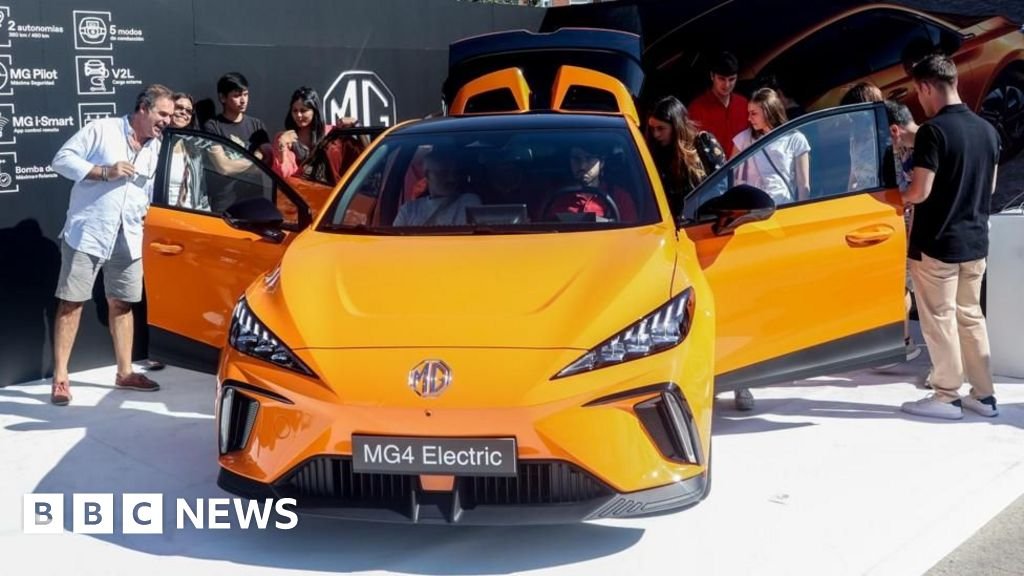China has been counting on high-tech products to help revive its flagging economy and the EU is the largest overseas market for the country’s electric car industry.
China’s domestic auto industry has grown rapidly over the past two decades and its car brands have began moving into international markets, prompting fears from the likes of the EU that their own companies will be unable to compete with the cheaper prices.
The EU imposed import tariffs of varying levels on different Chinese manufacturers in the summer, but Friday’s vote will decide if they are implemented.
The charges were calculated based on estimates of how much Chinese state aid each manufacturer has received following an EU investigation. The European Commission set individual duties on three major Chinese EV brands – SAIC, BYD and Geely.
Figures show that in August this year, EU registrations of battery-electric cars fell by 43.9% from a year earlier.
In the UK, demand for new electric vehicles hit a new record, but sales were mostly driven by commercial deals and by big manufacturer discounts, according to the industry trade body.
EU members remain divided on tariffs. Germany, whose car-manufacturing industry is heavily dependent on exports to China, is unlikely to vote in favour of them.
German carmakers have been vocal in opposition. Volkswagen has said they are “the wrong approach”.
However, France, Greece, Italy and Poland are likely to vote in favour of the import taxes. The EU’s proposal can only be blocked if a qualified majority of 15 members vote against it.
On Friday, SAIC – which owns the MG brand – said it would not change the price tags of its electric vehicles this year, regardless of the outcome of the vote.
Source link
